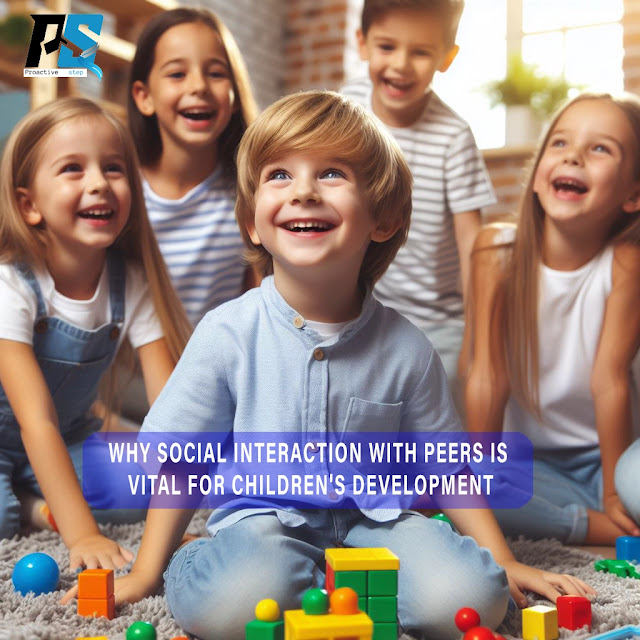Why Social Interaction with Peers Is Vital for Children's Development
Introduction: In an increasingly digital world, where screens dominate and virtual interactions abound, the significance of face-to-face social interaction among children cannot be overstated. Beyond mere play, these interactions form the bedrock of a child's social, emotional, and cognitive development. This article delves into the profound importance of kids being around other kids, exploring the multifaceted benefits it offers to their holistic growth and well-being.
1. Social Skills Mastery:
- Interacting with peers provides children with invaluable opportunities to hone crucial social skills such as communication, cooperation, and conflict resolution.
- Through collaborative play and group activities, kids learn the art of negotiation, compromise, and empathy, laying the foundation for healthy social relationships later in life.
2. Emotional Intelligence Cultivation:
- Peer interactions serve as a laboratory for emotional exploration and regulation, allowing children to express, understand, and manage their feelings in a supportive environment.
- Children develop emotional intelligence, resilience, and coping mechanisms essential for navigating life's ups and downs by witnessing and responding to various emotional cues from their peers.
3. Language and Cognitive Development:
- Engaging in conversations, storytelling, and imaginative play with peers fosters language acquisition, vocabulary expansion, and linguistic fluency.
- Furthermore, group problem-solving activities and intellectual discussions stimulate cognitive development, critical thinking skills, and creativity, propelling children toward academic success and lifelong learning.
4. Formation of Meaningful Relationships:
- Building friendships and social bonds with peers fosters a sense of belonging, acceptance, and self-worth in children, bolstering their emotional well-being and mental health.
- These meaningful connections provide emotional support and serve as avenues for sharing experiences, ideas, and cultural perspectives, enriching children's lives and broadening their horizons.
5. Diversity Appreciation and Inclusion:
- Exposure to a diverse array of peers exposes children to different cultures, backgrounds, and perspectives, fostering tolerance, empathy, and respect for others.
- By celebrating diversity and embracing inclusivity from a young age, children develop a global mindset, cultural competency, and a deep appreciation for the richness of human experience.
6. Competition Between Children:
Competition between children can be a double-edged sword. On one hand, it can motivate them to achieve their best, fostering a sense of accomplishment and self-improvement. When managed properly, competition encourages children to set goals, work diligently, and develop resilience. It can also teach valuable life skills such as teamwork, sportsmanship, and how to handle both success and failure gracefully.
- Managing Healthy Competition
However, it is essential to ensure that competition remains healthy and constructive. Excessive pressure to win can lead to stress, anxiety, and a negative impact on self-esteem. Parents and educators should focus on the effort and learning process rather than just the outcome. By creating a supportive environment where children feel valued regardless of the result, we can help them develop a balanced perspective on competition and personal growth.
Conclusion: In essence, the vitality of kids being around other kids transcends mere socialization; it is a cornerstone of their development, shaping their identities, relationships, and outlook on the world. As parents, educators, and societal stakeholders, we must create and nurture environments that foster meaningful peer interactions, where children can learn, grow, and thrive together. By prioritizing social connection and community building in children's lives, we lay the groundwork for a future generation that is not only academically proficient but also socially adept, emotionally resilient, and culturally competent.
Social interaction with peers is vital for children's development as it enhances their social and emotional skills and boosts self-confidence. If you are interested in understanding how to provide optimal care for children and teenagers, you can read the Complete Guide to Teenage Care for comprehensive tips and ongoing support during the teenage years.
Keywords:
- Social interaction and child development
- Peer interaction benefits for kids
- Emotional intelligence in childhood
- Importance of social skills in education
- Diversity appreciation in early years


Comments
Post a Comment